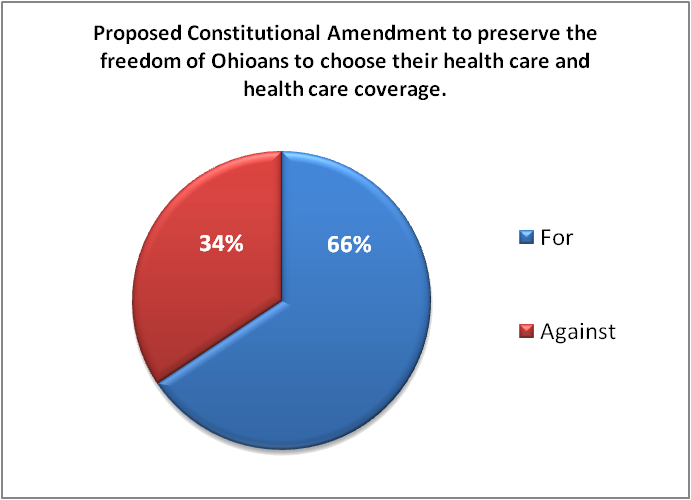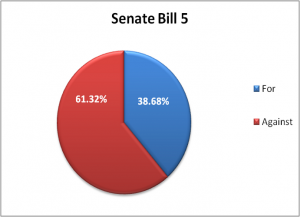Author’s disclosure: I do not have health insurance, and have had a persistent health problem in that time, so this is a personal issue for me.
While most of the attention on the results of last night has focused on the defeat of the Personhood amendment in Mississippi and the repeal of John Kasich’s draconian austerity SB5 measure, there’s an equally interesting story to be told in another Ohio ballot initiative. This story is important to tell, not because it represents a symbolic defeat of President Obama’s agenda, but because it represents that same kind of blow to responsibility in this nation.
Over the last 20 years, it became apparent that we had a health care problem in this country. This problem had two sides, access and cost, and the problem of cost only served to further restrict access. At the height of the problem, nearly 50 million people in the richest country in the world did not have health insurance. Throughout the 90s, the debate on solving this problem was split between two main factions. The first faction was represented by mainstream Democrats, who pushed for a single-payer health insurance system akin to Canada’s. It would have required the creation of a new bureaucracy, new taxation (though for most people this would be offset by the disappearance of their health insurance premiums), but would have provided for universal coverage. That, combined with the plan’s tax-based premium collection of the young and healthy, would have reduced per-capita costs of treatment and coverage.
The second faction, led by mainstream Republican figures such as Newt Gingrich and Bob Dole, pushed for a more market-based solution. They proposed a nationwide market for health insurance coupled with a universal mandate that all people hold health insurance. While wildly different from the single-payer solution, this plan still addressed both main health care problems which faced our country at the time. The universal mandate would (ham-fistedly) ensure everyone had health insurance of some kind, and the free-rider problem of the young and healthy being uninsured would be resolved in the same way.
Fast forward to 2009: The Republican proposal has passed in Massachusetts, championed by then-Governor Mitt Romney, and serves as the model for President Obama’s signature piece of the legislation, The Affordable Care Act. During its passage, Republicans across the nation would decry the exact same policies they pushed a decade ago as an irreversible step toward socialism. While they failed to kill the bill’s passage, they have focused their attacks not on the establishment of regional insurance exchanges, but on the mandate itself. As has become the norm with Republicans, they have chosen to make a target of that which makes the law sustainable, not the law itself. And, politically, they have been very successful. Which leads us to tonight’s results:
As you can see, they are nearly mirror image. Turnout, which was built around defeating Senate Bill 5, was also markedly opposed to the universal mandate. This is a policy that both parties have advocated in the past, and represents the only real cost-savings measures in a very watered down Affordable Care Act. Why, then, is it so unpopular? Are voters confused? Has the White House failed on a messaging level? Or are voters so selfish that they would reject the one thing which would make the wildly popular idea of insurance exchanges solvent?
In truth, it’s probably a combination of all three, but the last is what worries me so much. In a world where national political discourse is being driven by demagogues and partisans, we cannot afford to have a voting public that is so willing to cut off their nose to spite their face. This vote is, of course, completely meaningless. The Affordable Care Act is law, and despite the long-shot effort in the courts to say otherwise, the judicial mainstream has affirmed that the individual mandate is consistent with the Constitution’s powers. But the fact that voters who were so well educated on a very technical austerity measure like SB5 yet remain ignorant of the fundamental importance of something like the individual mandate in making our insurance market sustainable represents an enormous failure on the part of the media, proponents of the Affordable Care Act, and voters themselves, and something needs to change.




Leave a Reply